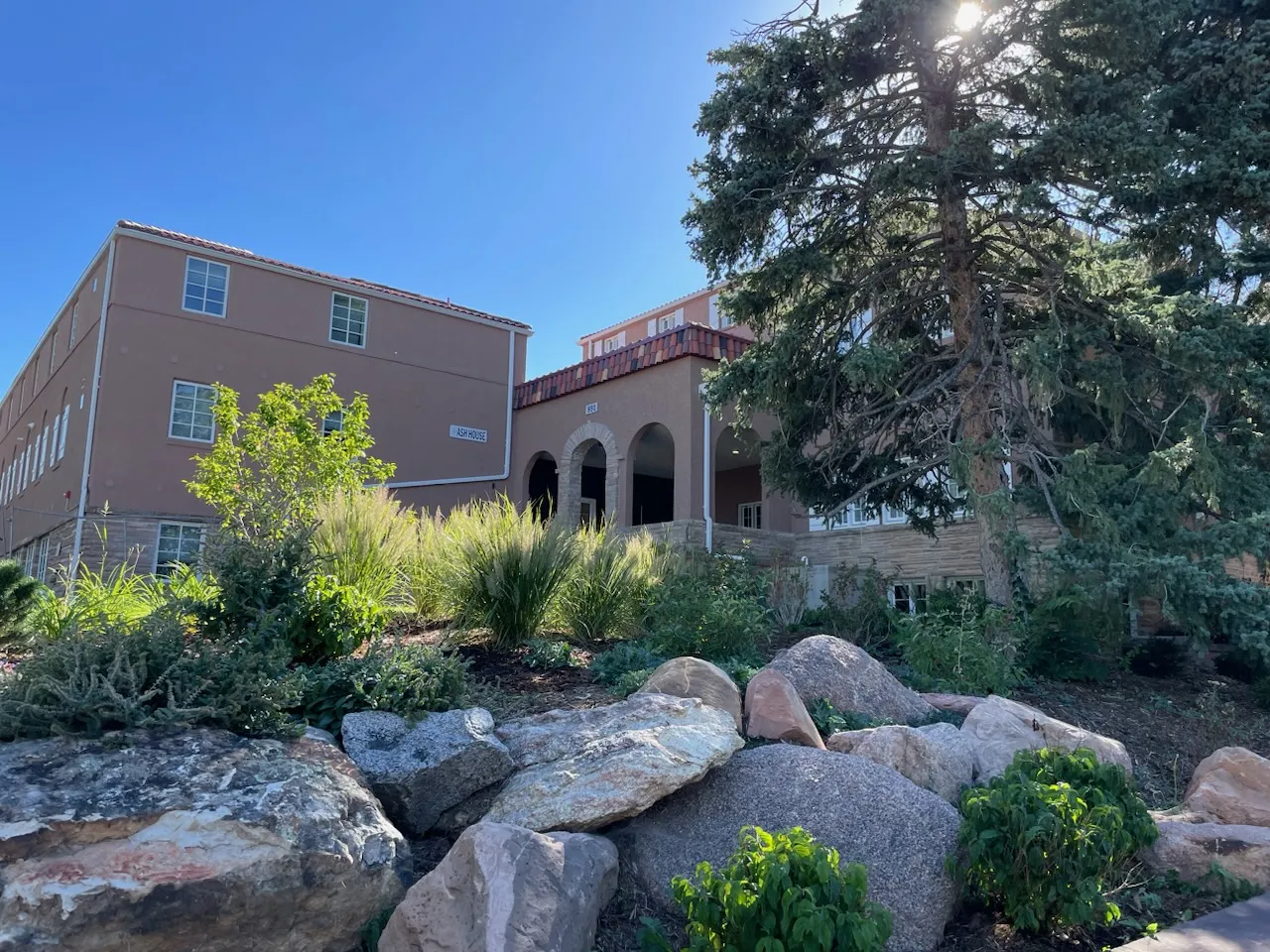CU students ‘innocent victims’ in Ash House dispute
Uncertainty remains over where students will live

BOULDER — There was a real possibility that about 60 University of Colorado students could have been forced out of their off-campus apartments last week with little notice and nowhere to go.
While that outcome was avoided — at least for now — when a judge temporarily blocked an attempt by Boulder officials to shutter and vacate the Ash House property over numerous alleged building-code violations, uncertainty remains over where those students will live for the remainder of the school year.
During a hearing on Friday, the question facing the court essentially boiled down to which option was the least bad: potentially putting the CU students out on the street or allowing them to remain housed in a building that could be unsafe? Legally speaking, the answer — again, for the moment at least — was the latter.
SPONSORED CONTENT
Boulder County District Court Judge J. Chris Larson on Friday denied an attempt by Boulder city attorneys to lift a temporary restraining order placed this week by the court that blocks the city’s ability to close Ash House, an off-campus apartment building owned by 891 12th St LLC and occupied by CU students.
The court order was extended to Oct. 8, the same day that another hearing on the case has been scheduled. After that hearing, the issue of Ash House’s longer-term future could begin to come into clearer focus.
In the meantime, the building’s student residents, who were given only about four-hours notice about the city’s intent to close the apartment building, remain “innocent victims,” as Larson described them during Friday’s hearing, in a legal standoff between a city and a landlord whose combined actions have put them in a “frightening situation.”
While the parties duked it out in court and in legal filings, residents were left “scrambling, finding friends to stay with,” a CU sophomore told Boulder Reporting Lab last week. Other Ash House renters booked hotel rooms. Neither the city nor Ash House’s owner did much to help.
How we got here:
The historic Ash House was originally built in 1923 to serve as the Sigma Alpha Epsilon fraternity house and was taken over in 1973 and converted into the Marpa House, which provided housing for members of the Shambhala community.
Developer John Kirkland, along with a group of investors who purchased the Marpa House in 2019 for $5 million, won approval from Boulder City Council in May 2021 to transform the property into apartments for CU students despite vocal opposition from neighborhood residents. The redevelopment project finished during last school year.
Neighbors were concerned about noise and disruptive behavior from student residents. As a result, Boulder officials included a series of conditions to their 2021 approval that included strict quiet hours, limits to the number of cars renters are permitted, 24-7 onsite management, occupancy limits of one person per bedroom and a good-neighbor agreement with surrounding property owners. Violations could have resulted in the city revoking Ash House’s rental license.
“We’re extremely empathetic and receptive to the range of very emotional pleas from neighbors who have shared their views on this from the beginning,” project consultant Rob O’Dea said during a 2021 hearing on the redevelopment proposal, adding that the developer “get[s] where they’re coming from.”
However, he said, “It will be hands down the nicest, highest-quality and best-managed property in this area.”
The plans that Boulder officials approved three years ago allowed for 48 residents spread across 16 three-bedroom units to live at the property at any one time, according to city documents.
Code violations
Boulder’s code compliance division manager Jennifer Ross testified last week that her office recently received a “complaint that there were fourth bedrooms” added to Ash House’s three-bedroom units from a tenant who noticed that their lease specified that the unit included only three bedrooms, not four.
After an inspection on Sept. 12, city officials determined that “most units” had been modified to fourth bedrooms and several even had a fifth area that appeared intended to serve as another bedroom, she said.
Ross told the court that she was “pretty shocked by what I was looking at in the property. … The fact that these rooms existed gave me pause and anxiety.”
When Brad Mueller, Boulder’s director of planning and development services, was looped into the situation, he testified that he “was immediately concerned about the life-safety issues” presented by the room modifications.
Specifically, city officials said they were concerned about the potential for fires, given that it appeared that electrical work was performed without permits and smoke detectors were not installed in the modified bedrooms, which also appeared to lack proper ingress and egress.
The new bedrooms presented city inspectors with a “very urgent situation” and “an immediate danger to the people living there,” Mueller testified.
Ash House owners, in their lawsuit filed Monday, said that this summer they made “improvements to thirteen units within the Property, such as extending four-foot ‘pony’ walls up to the ceiling, and adding doors to the newly partitioned area.”
The newly extended “walls were purely to partition the structure and were not load-bearing or otherwise structural,” the lawsuit said.
Because the work performed in the units was of a “limited nature,” Ash House’s owners “did not believe that it required City authorization or permitting and did not consult the City,” attorneys for the landlord wrote in the lawsuit.
Further, the property owner is not “aware of any immediate dangers to its tenants or property manager and does not believe that any such dangers exist.”
Boulder officials had hoped to keep residents out of Ash House until the room modifications are removed and the property meets the specifications spelled out by the previously approved conditions, the city said.
“Imminent danger” or merely “unsafe?”
In order to immediately condemn a property, Boulder officials must show not only that the property owners have committed building-code violations, but also that those violations have resulted in imminent danger for occupants.
Larson did not rule last week on the substance of each party’s claims, merely that Boulder hadn’t met the legal threshold to shutter Ash House. Nor, he said, did the city’s posted notices to Ash House residents and owners mention imminent danger.
Stephen Thomas, the Colorado regional manager for inspection-services company Shums Coda Associates and an expert witness called by 891 12th St LLC’s lawyers during last week’s hearing, testified that he toured the apartment building and “identified some code violations. I would (categorize) them (as) unsafe,” but not immediately dangerous.
Lack of smoke detectors and obstructed sprinklers are “a life safety issue,” he said, “but it isn’t imminent danger” under the applicable building-code section.
He also noted: “There isn’t a building in the country that complies with building code, including the (courthouse) building that we’re in today.”
By ordering the apartments vacated without providing other housing options, “you essentially created a situation that placed (residents) in a situation where they could be irreparably harmed,” Larson told attorney Luis Toro, who represented the city in last week’s hearing. “… The last thing that we would ever want to have happen is to have anything unfortunate happen to these students.”
The judge continued: “If this was an imminent danger that required the students to be removed from the building, what accommodations did the city of Boulder do to address the imminent harm that was going to befall these students? Did you set up a shelter to be able to accommodate them?” The answer to that second question was no.
The city did, however, reach out to CU to help coordinate assistance for Ash House residents.
“CU Boulder’s Division of Student Affairs is working to support students and provide resources through Off-Campus Housing and Neighborhood Relations, the Basic Needs Center and other support services to help them navigate this abrupt and significant disruption,” a CU spokesperson told BizWest in an email Friday.
In a statement provided to BizWest after Friday’s hearing, O’Dea said that it is “very disappointing the city’s instincts were to evict dozens of university students with minimal notice and no plan to safely house them rather than simply pick up the phone and call the building owners to resolve their non-emergency code concerns. The city’s unprecedented and, as the court noted, unjust action caused the residents undue stress over housing insecurity when they should be focused on their education and college life.”
While Larson agreed to extend the court’s temporary restraining order that prohibits Boulder from closing Ash House, he didn’t let the property owners off the hook for their role in leaving the building’s residents in the lurch.
“Why did your client rent these properties to these students?” Larson asked Andrew Peters, an attorney with Otten Johnson Robinson Neff + Ragonetti PC who represents 891 12th St LLC.
In response, Peters said he would “concede that it would have been better to go back to the city and seek the permitting” for modifications to the apartments. “Nobody is arguing about the substantive provision of this that (asks), ‘Is there a violation here?’”
Larson then asked: “Is this a business dispute with the city and the students are innocent victims?” Peters responded in the affirmative.
The dispute, Larson suggested, could have been avoided if the property owner had got “the permits to get the work done before it was constructed and long before you rent to the students.”
There was a real possibility that about 60 University of Colorado students could have been forced out of their off-campus apartments last week with little notice and nowhere to go.





